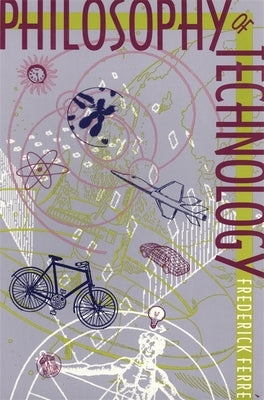1
/
of
1
University of Georgia Press
Philosophy of Technology
Philosophy of Technology
Regular price
€24,95 EUR
Regular price
Sale price
€24,95 EUR
Shipping calculated at checkout.
Quantity
Couldn't load pickup availability
In this widely taught introductory survey, Frederick Ferr explains the fundamental concerns and methods of philosophy and then guides readers through a philosophical inquiry into some of the major issues surrounding technology's impact on our lives.
The first half of the book concentrates on key definitions and epistemological issues, including an overview of philosophy as applied to technology, a definition of technology, and an examination of technology as it relates to practical and theoretical intelligence--especially how high technology relates to modern science and how science depends on technical craft. The second half addresses the problems of living with technology. Ferr contrasts Karl Marx's and Buckminster Fuller's "bright" visions of technology and modern existence with the "somber" visions of Martin Heidegger and Herbert Marcuse. Next, in offering direction for an ethical assessment of technology, Ferr poses questions about workplace automation, computers, nuclear energy, Third World development, and genetic engineering. Finally, the book considers debates about the mutual influences between technology and religion, and technology and metaphysics. A glossary and a list of suggested further readings are included. Providing a philosophical framework that will remain timely in the face of rapid technological change, Philosophy of Technology will help students in both the sciences and liberal arts to examine comprehensively their own and society's fundamental beliefs and attitudes about technology.Author: Frederick Ferre
Publisher: University of Georgia Press
Published: 09/01/1995
Pages: 168
Binding Type: Paperback
Weight: 0.66lbs
Size: 9.01h x 6.06w x 0.51d
ISBN: 9780820317618
About the Author
Frederick Ferre is Research Professor of Philosophy at the University of Georgia. His many books include "Ethics and Environmental Policy: Theory meets Practice" (Georgia), which he coedited with Peter Hartel, and "Hellfire and Lightning Rods: Liberating Science, Technology, and Religion."
Share


